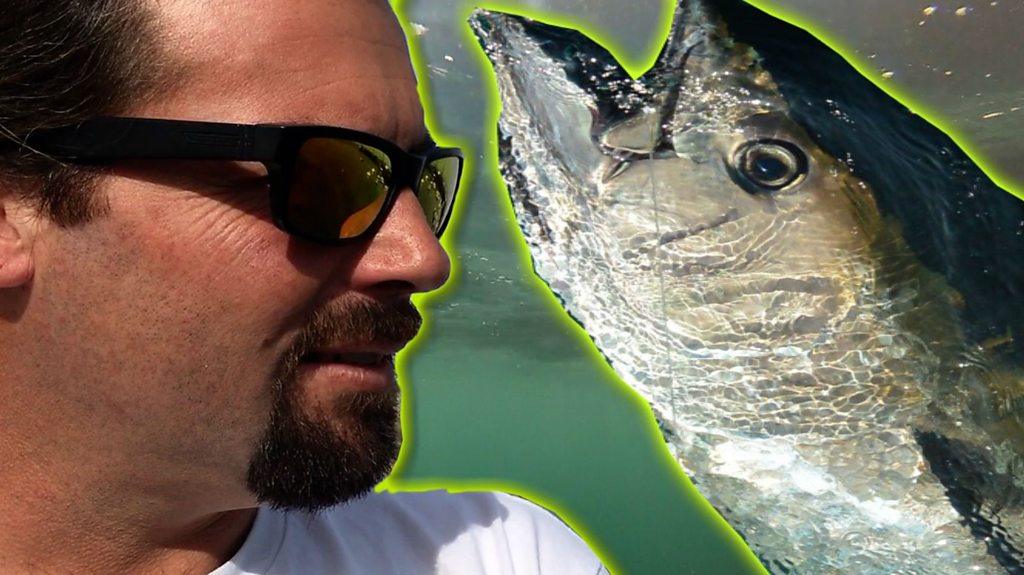The warm water fish making their way to British waters
- Published
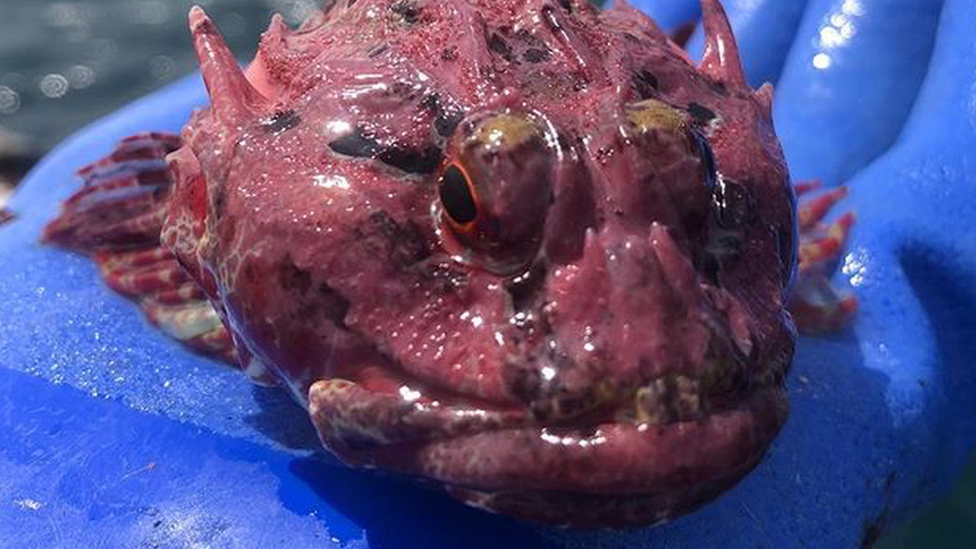
Previously unseen species like the scorpion fish have the potential to become more common in Channel Islands waters, the book's authors say
Rising sea temperatures have seen new fish species become established in waters around the British Isles, research has shown.
Scientific records, archives and contemporary reports have been combined to build a picture of marine life in waters around the Channel Islands.
Since the 1990s a "new wave" of fish species has been regularly recorded, the research's authors say.
New visitors include Atlantic bonito, and species of jack and bream.
The increase in certain types of fish is being linked to a rise in sea temperatures - with waters around Jersey, the largest of the islands, seeing a 1C rise since 1960.
The Atlantic bonito, a popular eating fish similar to a mackerel, have been caught regularly by anglers in summer months, authors of Marine Fish of the Channel Islands say.
"Some people go to Florida and they go bonito fishing, so it's a big surprise that every single summer anglers around Jersey, anglers around Guernsey are catching these fish," author Alex Plaster said.
The marine geography graduate worked with Paul Chambers, a Channel Islands marine expert and author, to delve into fish records going back to the 1800s.
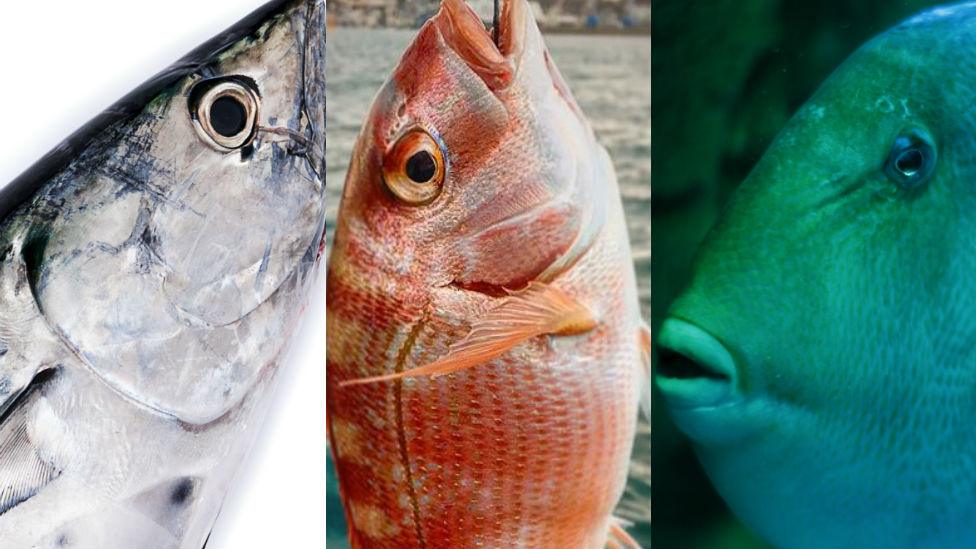
Atlantic bonito (left), couch's bream (centre) and grey triggerfish (right) are Mediterranean species found in the Channel Islands
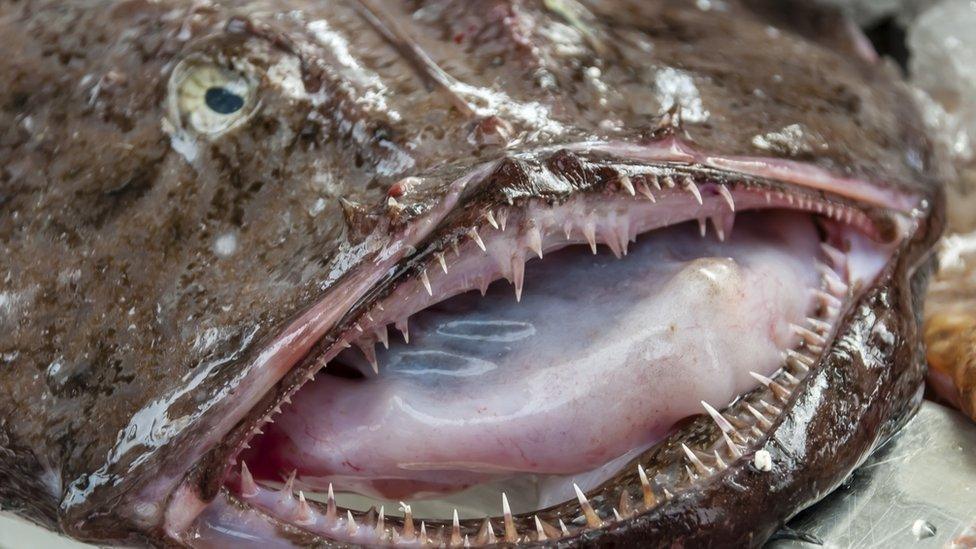
Overfishing has seen once common species such as monkfish (pictured), skate and spurdog largely disappear from island waters, while other cold water species have moved further north, the authors say
Other trends, including the re-emergence of the endangered bluefin tuna, were unlikely to be linked to rising sea temperatures but warming seas were the main driver behind changing fish behaviour, Mr Plaster added.
"It's the winters where you're seeing a massive difference in sea temperatures.
"This is allowing some species to stay almost year-round, and also we're getting more and more species from the south - almost Mediterranean waters," he said.
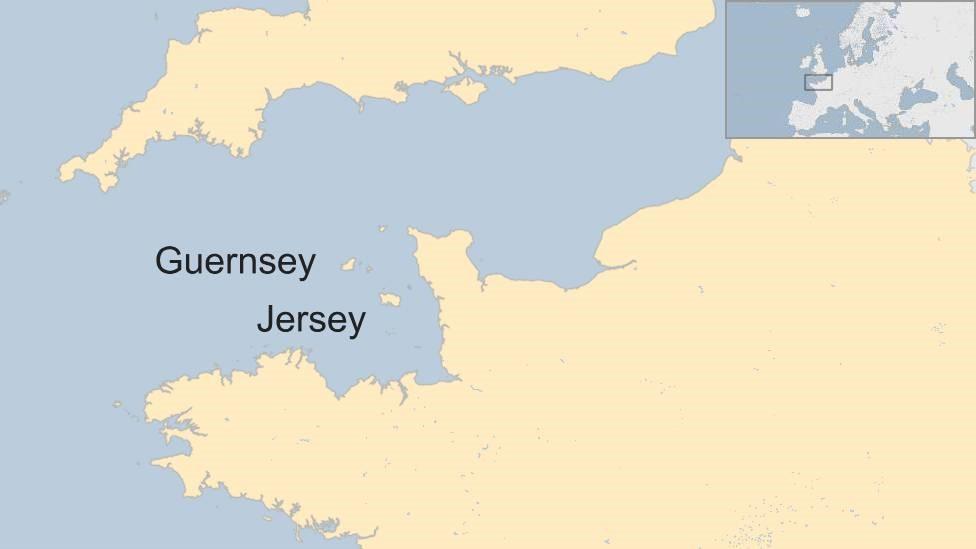
The Channel Islands include the southernmost point in the British Isles, called Les Minquiers, a group of rocks about nine miles (14.4 km) south of Jersey
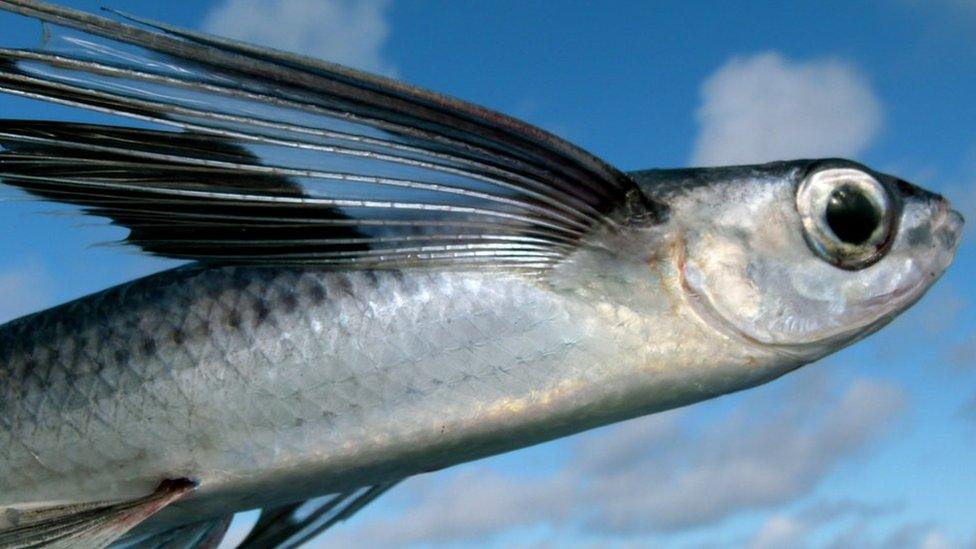
Flying fish (pictured) and bramble sharks are some of the more unusual visitors to the Channel Islands' waters
Research from the University of Southampton has also suggested new kinds of shark - including the great hammerhead, blacktip, and oceanic whitetip - could migrate to UK waters as the oceans warm.
Other new species found in the Channel Islands include the Atlantic saury and spotted sea bass, which are being caught by anglers in summer months.
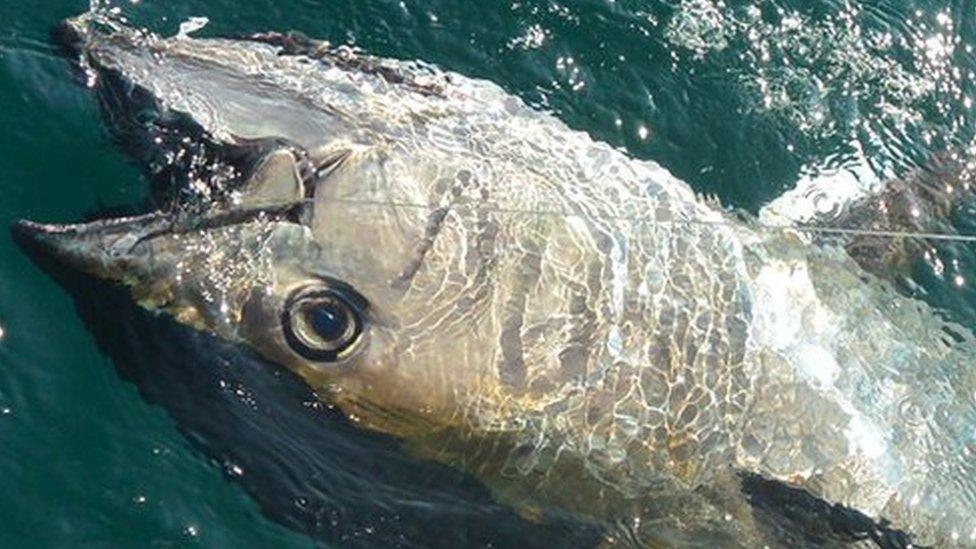
This 9ft (2.7m) long bluefin tuna was caught off Guernsey in 2018
- Published17 July 2018
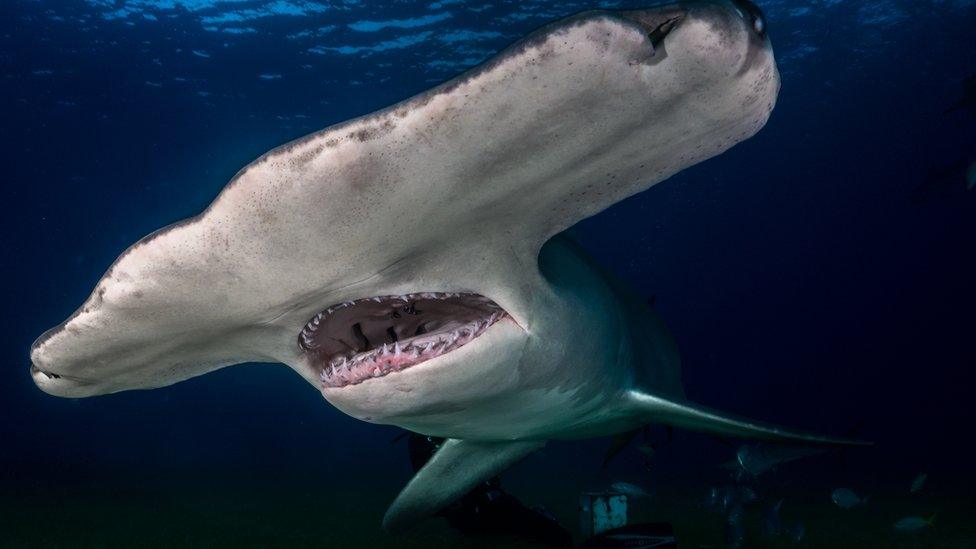
- Published22 October 2018
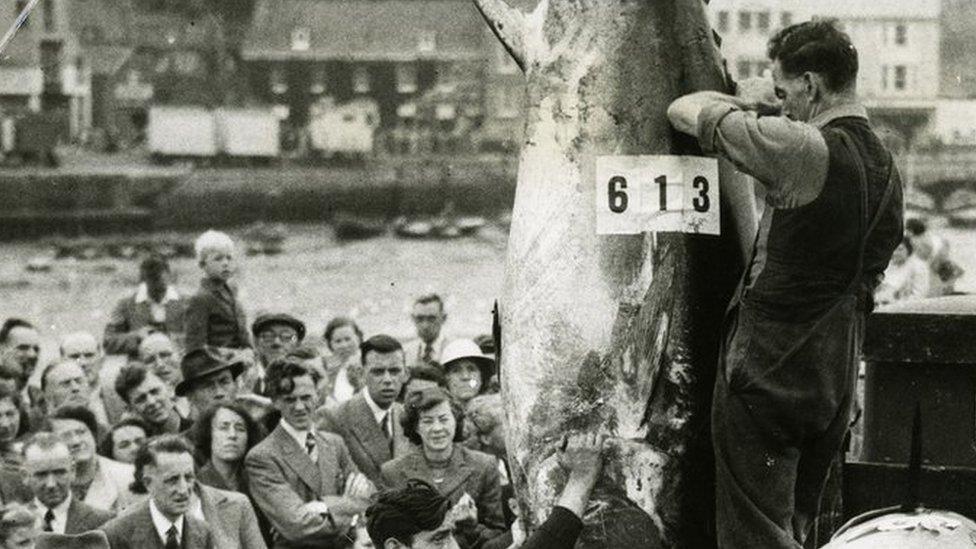
- Published1 November 2018
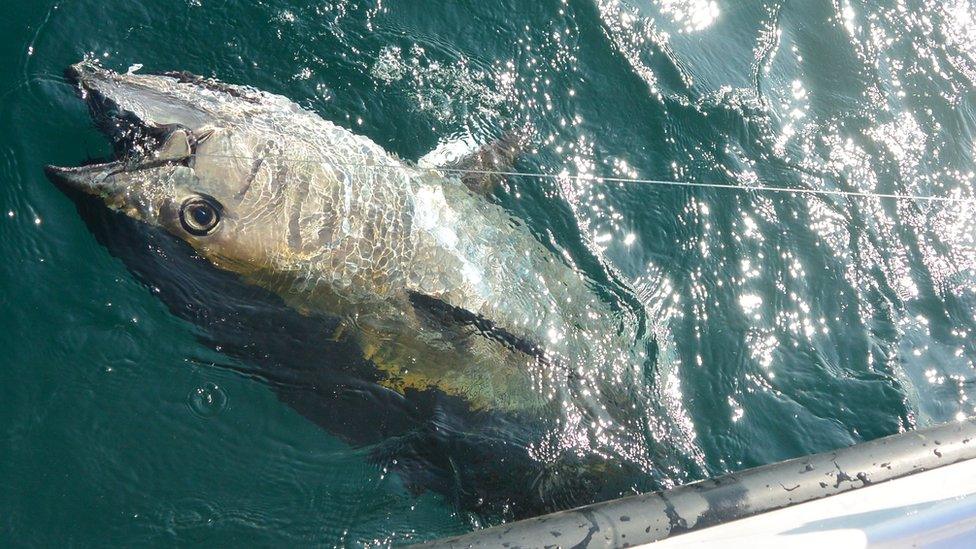
- Published22 October 2018
